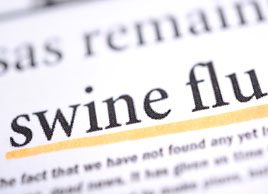Swine flu FAQ
Get the facts about the new H1N1 virus and learn how to protect yourself

Source: Best Health Magazine, October 2009
What is H1N1?
The new H1N1 flu virus making headlines is a combination of swine, bird and human influenza viruses, and a subtype of influenza A virus (the most common cause of seasonal flu in humans). If you get flu symptoms, that doesn’t mean you have the new H1N1; only a test will determine that.
How sick does it make you?
While it may become more virulent, most people with the virus experience only mild flu symptoms‘though, worryingly, several countries have reported a higher risk of severe or fatal illness in infected women who are pregnant.
Is there a vaccine?
Yes. This fall’s seasonal flu vaccine won’t protect you from the new H1N1. However, the federal government is purchasing 50.4 million doses of a vaccine for it; it will be available sometime in November to Canadians who want or need it. Higher-risk groups such as pregnant women, people living in remote communities and people under 65 with chronic health conditions will recieve the vaccine first. As with seasonal flu vaccine, it’s not expected to be 100 percent effective.
Can H1N1 be treated?
Antivirals (Tamiflu and Relenza) are available to Canadians. They do not prevent you from getting a flu virus, but stop it from spreading through the body, thereby reducing symptoms and duration of illness. These should be taken within the first 48 hours of onset of symptoms. The World Health Organization (WHO) and the Public Health Agency of Canada recommend the use of antivirals be limited to severe cases and people at risk for complications.
To reduce your risk:
‘ Wash hands well.
‘ Avoid crowds if you can.
‘ Eat right and get lots of sleep to boost immunity
This article was adapted from "Blindsided by swine flu," originally published in the October 2009 issue of Best Health. Subscribe today to get the full Best Health experience’and never miss an issue!’and make sure to check out what’s new in the latest issue of Best Health.




